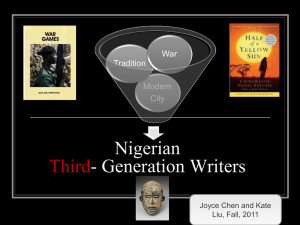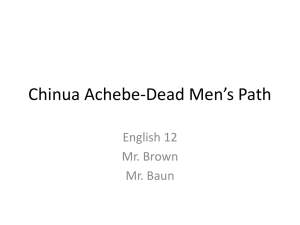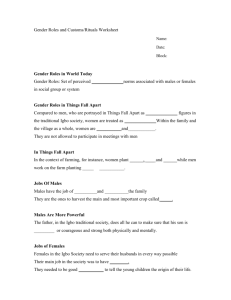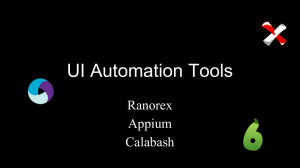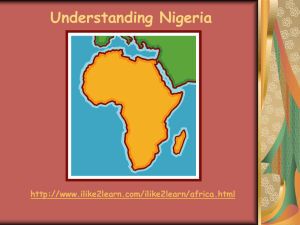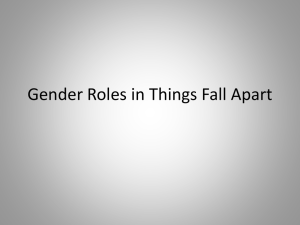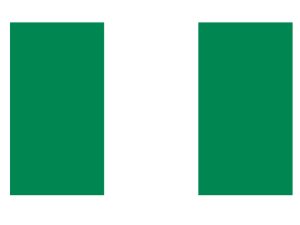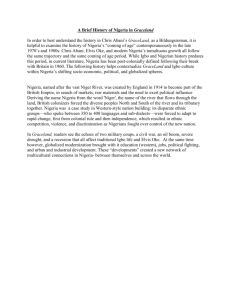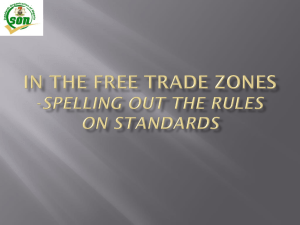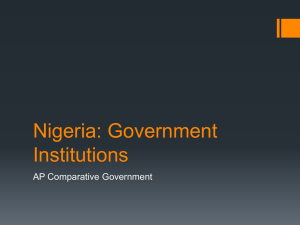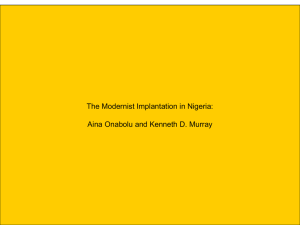The Broken Calabash
advertisement
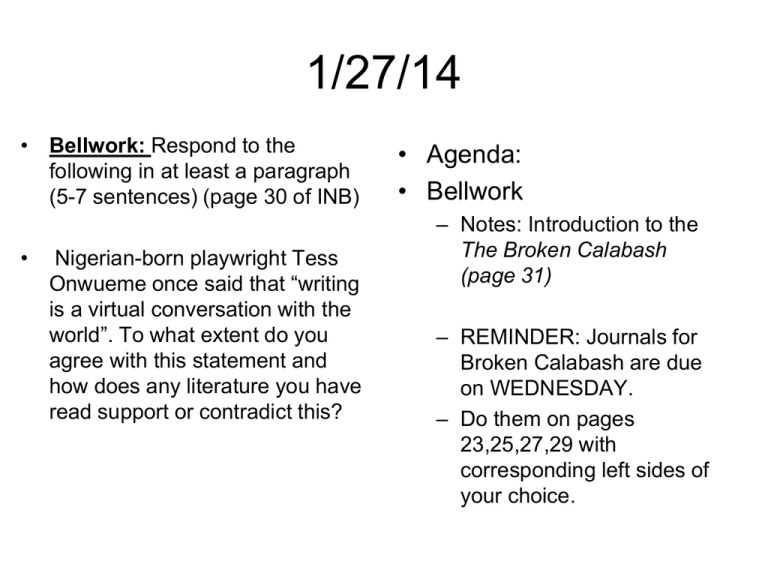
1/27/14 • Bellwork: Respond to the following in at least a paragraph (5-7 sentences) (page 30 of INB) • Nigerian-born playwright Tess Onwueme once said that “writing is a virtual conversation with the world”. To what extent do you agree with this statement and how does any literature you have read support or contradict this? • Agenda: • Bellwork – Notes: Introduction to the The Broken Calabash (page 31) – REMINDER: Journals for Broken Calabash are due on WEDNESDAY. – Do them on pages 23,25,27,29 with corresponding left sides of your choice. The Broken Calabash – Background Info • Written by Tess Onwueme – Nigerian playwright who teaches at the University of Wisconsin – Considers herself an activist who uses theater as a medium to write about ‘untold stories’ • Focuses on bringing attention to issues affecting black women and young people in post-colonial societies – Issues such as gender, race, poverty, politics, identity, tradition, family Play Overview • The Broken Calabash is one of Onwueme’s first plays, performed in 1984 in Nigeria. • The play focuses on the clash between modernity and traditional African systems. – The main character, Ona, is an only daughter of the chief of a rural Nigerian Igbo village. – She goes off to the university and is exposed to western and modern ideas, which clash with her father’s traditional values. The conflict • Since Ona is the only child and female, her family expects her to follow the tradition of being an Idegbe. – An idegbe is the name of a only female child who is expected to continue her father’s line by either marrying another woman (who then will have children by her father) or produce a child by another man who will carry her father’s name and wealth, keeping it in the family. • As Ona has been exposed to a university of education, she believes in individualism and free will; she believes she has a choice, but her father does not. The Culture of The Broken Calabash • The play takes place in Nigeria; there are four major ethnic groups: the Igbo, the Hausa, the Yoruba, and the Fulani. – Identity was wrapped up in ethnic or tribal affiliation, but since the 60’s, there has been a shift into Nigerian identity, after liberation from the British. • Nigeria was colonized by the British, which resulted in colonial wars; as a result, there is a significant tension between traditional “Nigerian” and western ideas. Above: A calabash gourd, which is dried out and used as a food and drink container. This is the object that is broken in the play. Right: Palm wine, commonly stored in calabashes in Nigeria. A calabash of palm wine is a ceremonial gift at a traditional Igbo engagement ceremony. Palm wine and palm oil are important commodities traditionally controlled by males. Right: Nzu, a white chalk, used in ritual Below: New Yam festival, a traditional Igbo annual harvest festival. In the play, all of the marriageable women declare their eligibility for marriage at the festival of Ine, a period of ritual cleansing before the New Yam festival. Style • Ritual, dance and African proverbs are woven into the play. – Like the novel Things Fall Apart, this play includes western linguistic forms and literary traditions along with Igbo words, phrases, proverbs, tales and other oral and communal aspects of African storytelling. • The play is organized into “movements” rather than acts or scenes. • Stage directions are ample and fairly specific. This is common in other plays by Onwueme. Themes to think about • How do western educational traditions alter the lives of young people, especially women, living in traditional societies? • What is a woman’s place within a community cemented in traditional values and customs? • Is it possible to compromise and make informed choices while respecting traditions and customs? • How do family dynamics change in a changing world?

